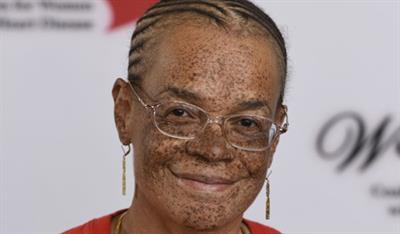
What is your CardioSmart story?
In May 2006, I was working in retail and running the No. 1 store in the company. I was unloading a truck when I felt a twinge in my back. I thought I had pulled a muscle, so I went to my office, sat down and took an aspirin. When I felt a bit better, I drove home and thought little about returning to work every day for another six weeks. The annoying pain did not go away, so I finally went to the emergency room at Nyack Hospital. After a few tests, I was told I had had a heart attack six weeks before in that truck. I was shocked. I had suffered a silent heart attack.
I was immediately placed in a cardiac care and did not return to work but began monthly — and sometimes weekly — visits to a local cardiac group for extensive care. My heart was not getting any better and in June 2008, my group sent me to NYC Montefiore Advanced Cardiac Program for evaluation. After nine days of evaluation and 16 doctors, Dr. Julia Shin placed me on the heart transplant list. She explained that I would not need a heart immediately but that my heart would eventually fail as it was deteriorating fast. In late 2009, I began rapidly losing weight. In April 2010, I weighed 95 pounds. I was admitted to begin the final wait. I was told the wait would probably not be too long, but little did I know the long arduous journey I was facing. In the span of 78 days, I had three possible matches, but none was perfect. The perfect match came on July 16, 2010.
Nine days after my discharge, I did my first public event for National Minority Organ Donor Awareness Week, and I was off and running. I found it useful to others and myself to share my story to help others. I started doing that everywhere: TV news, talk shows, newspapers, magazines — wherever I could share, I did. Eleven months after my transplant, I became known to Oprah Winfrey’s producers through my work and was invited to be a guest on her show to talk about transplants in minority communities. Little did I know there was a surprise waiting. Oprah had found my donor family. I had the honor to meet them on national TV. I discovered my hero was U.S. Coast Guard E3 Fireman Michael Blain Bovill, who passed in a motorcycle accident on the George Washington Bridge in New York City. In his passing, he saved five lives with his entire donation. A 7-year-old Hispanic girl with his kidney; an 18-year-old black teenager with his other kidney; a 42-year-old Jewish man with his lungs; a 62-year-old Chinese man with his liver, and me with his beautiful heart.
Since that meeting, I have done hundreds of media appearances and thousands of personal appearances to further organ donation and heart health. I am a full-time volunteer for Live On NY, UNOS Ambassador, and WomenHeart Support Network Coordinator & Public Education Champion. I have now traveled as far as Fiji to share my story in hopes to save even one life. My goal is to tackle issues of heart-health education and have signed up almost 9,000 people for organ, eye and tissue donation by sharing my story with hopefully millions of people everywhere. Donate life.
How do you work with your doctors and care team to stay on top of your heart condition?
I follow the prescribed regiment of my team. I have the most respect for my transplant team at Montefiore Medical Center in the Bronx. I am sure that they always have the best interest of my life sustainability in mind. I AM COMPLIANT. Part of the original contract to live was compliance. I go to all my appointments, do my bloodwork monthly and take my meds regularly. I totally know that to preserve my new heart, I must be the best patient and compliance is my biggest friend. No rejection in six years says that loud and clear.
What lifestyle changes did you make to improve your heart health?
The biggest lifestyle change I made was maintenance of diet. It was so critical to me that I returned to college after 30 years to study nutrition. I am part of the State University of New York Rockland College Culinary Arts Program and working through the program. I have completed four semesters of coursework.
What challenges do you face? How are you able to overcome them?
I face a few physical challenges and some financial restrictions. The physical challenges revolve around regimented exercise. I do so much as a student and full-time volunteer that I sometimes don't have time or energy to do anything else. I force myself to walk as much as I can, but it needs to be more regular. The financial challenges are much more severe. The transplant journey has left me financially devastated, so I am always looking for inventive ways to pay bills. Every month is a struggle, so I try not to stress too much over it.
Who is your support system?
I have a family of 75 relatives living within 5 miles of my home. They are my personal cheerleaders. But best of all, I am lucky enough to have the support of all the political entities in my county. I have worked directly with my State Sen. David Carlucci on legislation to improve heart health and organ donation awareness. I also work directly with Live On NY, WomenHeart, and UNOS.
Do you have a personal motto? What inspires you?
"The Moment You Are Ready To Quit Is Usually the Moment Right Before The Miracle Happens. Never Give Up." Even at my lowest point, I never gave up, and I inspire others waiting especially for transplant to do the same.